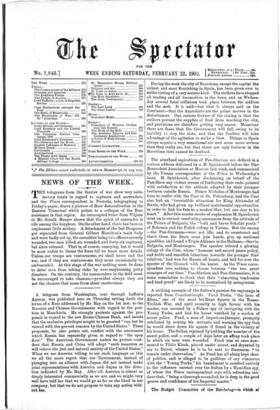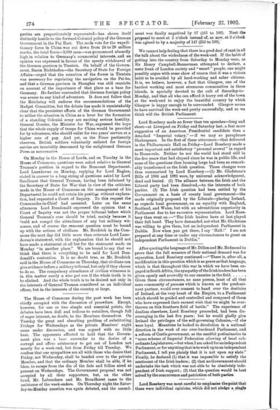The Budget Committee of the Reichstag—in whisk al
parties are proportionately represented—has shown itself distinctly hostile to the forward Colonial policy of the German Government in the Far East. The main vote for the expedi- tionary force in China was cut down from 24 to 20 million marks, the total force-3,030 men—was pronounced absurdly high in relation to Germany's commercial interests, and an opinion was expressed in favour of the speedy withdrawal of the German garrison in Tientsin. On behalf of the Govern- ment, Baron Richthofen—the Secretary of State for Foreign Affairs—urged that the retention of the forces in Tientsin was necessary for regulating the navigation on the Pei-ho, and that a German garrison in Shanghai was still requisite on account of the importance of that place as a base for Germany. He further contended that German foreign policy was averse to any kind of adventure. It does not follow that the Reichstag will endorse the recommendations of the Budget Committee, but the debate has made it unmistakably clear that the persistent efforts of the German Government to utilise the situation in China as a lever for the formation of a standing Colonial army are exciting serious hostility. General Gossler, the Minister for War, expressed the hope that the whole supply of troops for China would be provided for by volunteers, who should enlist for two years' service at a higher rate of pay. And yet, as the Times pertinently observes, British soldiers voluntarily enlisted for foreign service are invariably denounced by the enlightened German Press as mercenaries.











































 Previous page
Previous page